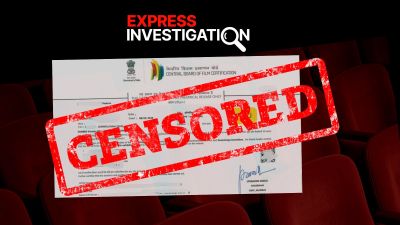Akshardham attack: DCB grills Majid Patel for mastermind’s whereabouts
Majid Patel, who was arrested last month in connection with the attack on Akshardham Temple, is believed to be holding vital clues about the whereabouts of the alleged mastermind of the terror attack— Abu Hamza.

Majid Patel, who was arrested last month in connection with the attack on Akshardham Temple, is believed to be holding vital clues about the whereabouts of the alleged mastermind of the terror attack— Abu Hamza.
Hamza, a Riyadh-based member of the Lashkar-e-Toiba (LeT), and 25 other accused in the case continue to evade the Ahmedabad police’s Detection of Crime Branch (DCB), even as over six years have gone by since the incident.
According to the police, Patel, one of the alleged conspirators of the September 24, 2002 attack on the Gandhinagar temple, had been staying near Riyadh in central Saudi Arabia since 1978. He is currently in the custody of the DCB.
Investigators said Patel is being interrogated about the whereabouts of Hamza and other absconders, which also include his brother and a co-conspirator, Iqbal Patel. The latter is believed to have taken shelter in South Africa, the police added.
“Most of the accused are reportedly hiding in and around Riyadh. We also want to establish the source and the exact route of over Rs 50,000 that Patel and his brother had sent for militants who carried out the attack,” said a DCB officer, who is interrogating Patel.
Pakistan-based LeT operatives Murtuza Hafiz Yasin (code name Doctor 2) and Ashrafali Mohammed Farooq (code name Doctor 3) were killed in the night-long gun battle in the temple premises that day. One Ayyub (code name Doctor 1), who is believed to have coordinated the attack from outside, is also in the city police’s list of absconders.
According to a senior DCB officer, Patel, who used to run a tailor shop at Al-Kharaj near Riyadh, was a frequent visitor to a famous spot about 120 kms from Al-Kharaj. “This place acts as a meeting spot for Asian Muslims living in and around Riyadh. The possibility of the other accused also visiting the place and Patel being in touch with them is therefore very high,” the officer added.
While investigating officers remained tight-lipped about putting Patel under psychological tests, special public prosecutor in the case, H M Dhruv, said the agency proposes to conduct these tests on Patel soon.
“In fact, one of the grounds that the DCB had mentioned in Patel’s remand application was that it wanted to conduct psychological tests — lie detection, brain mapping and narco-analysis — on him,” Dhruv added.
A team of the Special Operations Group (SOG) of the Bharuch police had nabbed him from Tankaria village on the night of October 19 following a tip-off.
A day after his arrest, Patel was handed over to the DCB. The 55-year-old man is accused of sending money for terrorists through Hawala channel from Riyadh.
The investigations so far have revealed that Patel had arrived in India on October 13. After landing at the Mumbai international airport, he boarded a train to Palej in Bharuch. From Palej, he took the roadway to reach his village in Tankaria. Sources in the DCB said this was his third visit to Tankaria since the attack.
Thirty-four people, including two National Security Guard commandos and two state commandos, were killed and over 80 were injured when Murtuza and Ashrafali stormed the Akshardham temple and opened indiscriminate fire with automatic weapons and lobbed grenades.
Almost four years after the incident, a designated POTA court in July 2006 awarded death sentence to three of the six accused, who had undergone trial in the case. While one was sentenced to life imprisonment, the other two were respectively awarded 10 and five years of rigorous imprisonment.
According to the records of the DCB, those still at large in connection with the case are Hamza, Iqbal Patel, Farukh Mohammed Sheikh, Abdul Rashid Kadri, Mohammed Owais Kadri, Jahid, Gulam Laheri, Mustaqim, Akhtar Hussain, Maulvi Farhadulla Ghori, Shaukatullah Ghori, Abdul Rehman alias Abu Talah, Khalid, Abu Huzefa, Abdullah Mazhar, Kari Manan Maulvi, Kari Abdul Aziz, Kari Sharif, Yasin, Mustaq, Sartan, Kamil, Shakir, Ayyub and two others, who are unknown.



- 01
- 02
- 03
- 04
- 05




























